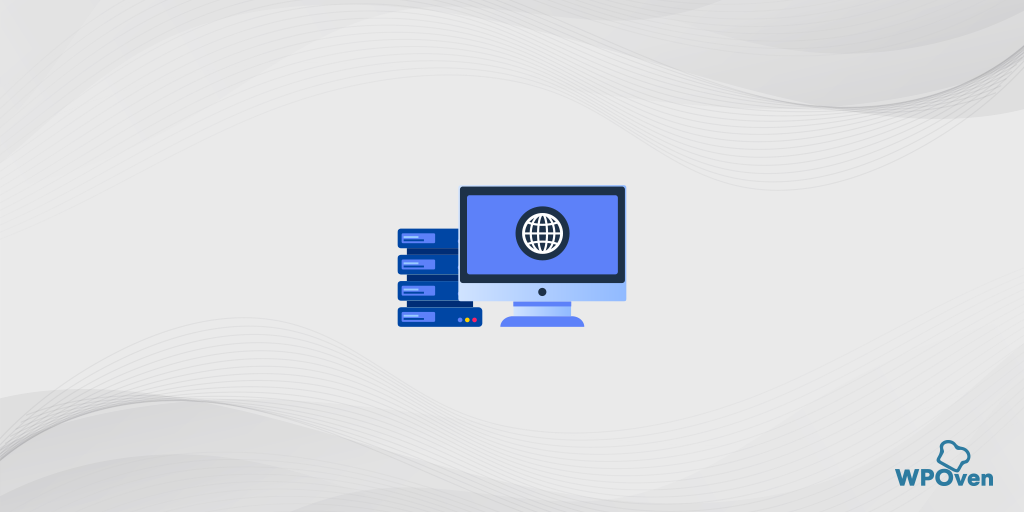E-commerce businesses thrive on speed, security, and scalability. As online stores grow, they often encounter challenges such as slow load times and security vulnerabilities typical of shared hosting environments. A VPS virtual private server offers a robust solution, providing dedicated resources, enhanced security, and the ability to scale seamlessly. This article explores the migration process and offers a comprehensive overview of VPS hosting tailored for e-commerce.
Toc
- 1. Understanding VPS Virtual Private Servers for E-commerce
- 2. VPS Virtual Private Server Pricing: Finding the Right Fit
- 3. Security and PCI Compliance with Your VPS
- 4. Related articles 01:
- 5. Selecting the Ideal VPS Virtual Private Server
- 6. Migrating Your E-commerce Website to a VPS
- 7. Best VPS Virtual Private Server Providers: A Comparison
- 8. Emerging Trends in E-commerce Hosting
- 9. What is VPS Used For? Beyond E-commerce
- 10. Conclusion
- 11. Related articles 02:
Understanding VPS Virtual Private Servers for E-commerce

A VPS virtual private server is a hosting solution that utilizes virtualization technology to allocate dedicated resources to users on a shared physical server. This setup creates a more isolated environment compared to shared hosting. Unlike the resource constraints of shared hosting, a VPS provides a dedicated and controlled environment, allowing businesses to operate with greater efficiency and reliability.
Key Advantages of VPS for E-commerce
- Dedicated Resources for Performance : E-commerce businesses often experience traffic spikes, particularly during promotional events like Black Friday or Cyber Monday. With a VPS virtual private server, your website can maintain optimal performance, significantly reducing the risk of cart abandonment due to slow loading times. For example, studies have shown that even a one-second delay in page load time can adversely affect conversion rates. A VPS, with its dedicated resources, can handle these traffic spikes far more effectively than shared hosting, ensuring a positive customer experience.However, it’s crucial to note that even with a VPS, poorly optimized code or inefficient database queries can still lead to performance bottlenecks. Careful website optimization is essential, regardless of the hosting solution. Consider using content delivery networks (CDNs) to further improve performance and reduce latency for users geographically distant from the server.
- Enhanced Security Features : Security is paramount for e-commerce platforms that handle sensitive customer information. A VPS virtual private server provides a more secure environment than shared hosting, as your data is isolated from other users. This isolation is particularly important for protecting against common web vulnerabilities like cross-site scripting (XSS) and SQL injection attacks, which can compromise sensitive customer data. Furthermore, the ability to customize security settings, such as implementing robust firewalls and intrusion detection systems, offers an added layer of protection not readily available in shared hosting environments. A well-configured VPS can significantly reduce the risk of data breaches, which is critical for maintaining customer trust and adhering to regulations like PCI DSS.While a VPS offers enhanced security compared to shared hosting, the responsibility for maintaining security ultimately rests with the website owner. Regular security audits, software updates, and strong password policies are essential, even with the added isolation of a VPS. Neglecting these practices can still leave a VPS vulnerable to attacks.
- Scalability to Support Growth : As your e-commerce business evolves, so do your hosting needs. A VPS virtual private server allows for easy scalability, enabling you to upgrade your resources without significant downtime. This flexibility is vital for adapting to changing market demands and ensuring a seamless customer experience.
- Customization Options : A VPS virtual private server allows you to tailor your server environment to meet specific e-commerce requirements. Whether you need certain software, databases, or configurations, VPS hosting offers a level of customization that shared hosting cannot provide.
- Cost-Effectiveness in the Long Run : While the initial cost of a VPS virtual private server may be higher than shared hosting, it can prove to be more cost-effective over time. By preventing downtime, reducing cart abandonment, and enhancing customer satisfaction, a VPS can lead to increased sales and improved profitability.
- Improved SEO Performance : Search engines favor websites that load quickly and offer a seamless user experience. By leveraging the dedicated resources of a VPS virtual private server, your website can improve its loading speed, thereby enhancing your SEO rankings and attracting more organic traffic.
VPS Virtual Private Server Pricing: Finding the Right Fit
When considering a VPS virtual private server, pricing is a key factor. Several elements influence the cost of VPS hosting:
- RAM and Storage: The amount of RAM and storage directly impacts performance and scalability. Generally, more resources lead to higher costs. For e-commerce websites, having adequate RAM is crucial for handling simultaneous users and ensuring a smooth shopping experience.
- Bandwidth: The data transfer limits can significantly affect pricing. Understanding your website’s traffic patterns will help you select an appropriate plan. For instance, if you anticipate high traffic during holiday seasons or promotional events, consider a VPS plan with higher bandwidth limits.
- Operating System: VPS hosting plans often provide a choice between Linux and Windows operating systems. Typically, Linux-based VPS options are more affordable due to lower licensing fees. However, if your applications are specifically designed for Windows, it may be worth the extra cost.
- Managed vs. Unmanaged Services: Managed VPS hosting involves the hosting provider managing the server, which can be more expensive but beneficial for those lacking technical expertise. In contrast, unmanaged services offer more control but require a higher level of technical knowledge.
- Additional Features: Consider additional features that may affect pricing, such as backup services, security measures, and customer support options. Some providers offer comprehensive packages that include these features, while others may charge separately.
Exploring VPS Virtual Private Server Pricing
While VPS hosting can be pricier than shared hosting, affordable options exist without sacrificing quality. Price ranges for VPS plans typically start around $20 per month and can exceed $100, depending on the features and resources required.
To find the best value, consider these tips:
- Assess your current and projected traffic to choose a plan that accommodates growth.
- Look for VPS providers offering flexible pricing models, such as monthly or annual payment options.
- Research and compare different VPS plans to find one that meets your budget while providing essential features.
- Take advantage of promotional offers or discounts that VPS providers may offer, especially for first-time customers.
Security and PCI Compliance with Your VPS
Security is paramount for e-commerce businesses, and a VPS virtual private server offers enhanced security features vital for protecting sensitive customer information.
Importance of Security for E-commerce Websites
E-commerce sites are frequent targets for cyberattacks, with hackers seeking to exploit vulnerabilities to steal customer data. Data breaches can lead to substantial financial losses and damage your brand’s reputation. A VPS virtual private server creates a more secure environment through isolation from other users and customizable security settings.
Ensuring PCI Compliance
Maintaining PCI compliance is crucial for any e-commerce business that processes credit card transactions. Here are steps to ensure your VPS hosting environment meets compliance standards:
- Install Firewalls: Implement firewalls to filter incoming and outgoing traffic, providing an additional layer of security against unauthorized access.
- Utilize SSL Certificates: An SSL certificate encrypts data transmitted between your website and customers, safeguarding sensitive information like credit card details. Ensure your SSL certificate is properly installed and configured to protect your site.
- Regular Security Updates: Keep your server software and applications updated to protect against known vulnerabilities. This includes regular updates for the operating system, web server, and any installed applications. Set up automatic updates if possible to ensure you don’t miss critical patches.
- Conduct Regular Security Audits: Regularly assess your server’s security posture and address potential vulnerabilities before they can be exploited. This may involve vulnerability scanning and penetration testing to identify weaknesses.
- Backup Data Regularly: Regular backups ensure that you can recover your data in the event of a breach or data loss. Store backups securely and consider using automated backup solutions.
Case Study: Transitioning to a VPS
Consider the example of an e-commerce business that transitioned from shared hosting to a VPS virtual private server. The company experienced a significant increase in website traffic during a promotional event. With their new VPS, they maintained high performance and security, leading to a successful sale with minimal downtime. This transition not only enhanced customer satisfaction but also improved the overall security of their operations, allowing them to process transactions confidently.
Selecting the Ideal VPS Virtual Private Server
Choosing the right VPS virtual private server involves several factors tailored to your business needs.

Choosing Your Operating System
When selecting a VPS, consider the operating system that best suits your e-commerce applications. Linux is often preferred due to its stability, security, and flexibility. However, if your applications require a Windows environment, some providers offer Windows-based VPS options. Assess the software requirements of your e-commerce platform before making a decision.
Managed vs. Unmanaged: Weighing the Options
Decide whether you need a managed or unmanaged VPS service. Managed services are ideal for those who prefer to focus on their business rather than server management. Unmanaged services provide more control but require a solid understanding of server administration. If you have a dedicated IT team, an unmanaged VPS may be a viable option.
Essential Hardware Considerations

Assess the hardware specifications of potential VPS providers. Key elements include:
- RAM: Determine how much RAM your website needs to operate efficiently, especially during peak traffic periods. For e-commerce websites, 4GB to 8GB of RAM is often recommended for optimal performance.
- CPU: A powerful CPU can significantly enhance your server’s performance. Look for VPS options that offer dedicated CPU cores for better processing power.
- Storage: Evaluate your storage needs based on your site’s content and database requirements. SSD storage is preferable for faster data access and improved performance.
- Bandwidth: Ensure the plan includes sufficient bandwidth to handle your traffic. Consider plans that offer unmetered bandwidth for greater flexibility.
Scalability Options
Check how easily you can upgrade your VPS resources as your business grows. A provider with a straightforward upgrade process will save you time and reduce the risk of downtime during scaling. Some VPS providers offer one-click upgrades, allowing you to adjust your resources with minimal effort.
Importance of Customer Support
Reliable customer support is crucial for any e-commerce business. Look for VPS providers that offer 24/7 support, as this can be invaluable during critical times when your website needs immediate assistance. Assess the available support channels, such as live chat, email, and phone support, to ensure you have access to help when needed.
Best Practices for Choosing a VPS Provider
Before committing to a VPS provider, consider asking the following questions:
- What level of technical support do you offer?
- How easy is it to upgrade resources?
- What security measures are in place?
- Are there any limitations on resource usage?
- What is your uptime guarantee?
Migrating Your E-commerce Website to a VPS
Transitioning your e-commerce website from shared hosting to a VPS virtual private server can be daunting but can lead to significant performance improvements.

Step-by-Step Migration Process
- Backup Your Data: Before initiating the migration, ensure you have a complete backup of your website, including files, databases, and configurations. Use automated backup solutions to streamline this process.
- Choose Your VPS Provider: Select a VPS hosting provider that meets your needs regarding performance, security, and support. Read reviews and testimonials from other e-commerce businesses to make an informed decision.
- Set Up Your VPS: Configure your new VPS with the necessary software and settings required for your e-commerce platform. This may include installing a web server, database server, and any required applications.
- Transfer Data: Migrate your website data to the new VPS. This may involve transferring files, databases, and any necessary configurations. Use secure file transfer protocols to ensure data integrity during the transfer.
- Test Your Website: After migration, thoroughly test your website to ensure all functionalities are working correctly. Check for any issues with loading times, broken links, or missing content. Consider using a staging environment for testing before going live.
- Update DNS Settings: Once everything is functioning properly, update your domain’s DNS settings to point to your new VPS. Propagation may take some time, so plan for potential downtime during this period.
- Monitor Performance: After the migration, keep an eye on your website’s performance and make any necessary adjustments to optimize speed and reliability. Use performance monitoring tools to track loading times and resource usage.
Tips for Minimizing Downtime During Migration
To minimize downtime during the migration process, consider the following:
- Schedule the migration during off-peak hours when traffic is low.
- Use a staging environment to test the new setup before going live.
- Communicate with your customers about the migration to set expectations for any potential downtime.
- Prepare a contingency plan in case of unforeseen issues during the migration.
Best VPS Virtual Private Server Providers: A Comparison
When searching for the best VPS virtual private server, it’s essential to compare various providers. Here’s a comparison of popular VPS providers, highlighting their strengths and weaknesses.

Key Points
- Focus on providers catering specifically to e-commerce needs.
- Include a variety of pricing options to cater to different budgets.
- Highlight unique selling points of each provider, such as performance, security, and customer support.
- Look for providers that offer free trials or money-back guarantees to test their services before committing.
Emerging Trends in E-commerce Hosting
As technology evolves, so does the landscape of e-commerce hosting. Here are two emerging trends that are shaping the future of VPS and hosting solutions:
Adoption of Serverless Computing
A growing trend is the adoption of serverless computing architectures for e-commerce platforms. Serverless functions allow businesses to scale their applications automatically based on demand, eliminating the need to manage servers entirely. This can be particularly beneficial for e-commerce businesses experiencing unpredictable traffic spikes, as it provides automatic scaling without the overhead of managing VPS resources. However, serverless architectures might not be suitable for all e-commerce applications, particularly those requiring significant persistent storage or complex state management.
Increased Focus on Sustainability
Another trend is a growing emphasis on sustainable web hosting. Many providers now offer carbon-neutral or green hosting options, allowing e-commerce businesses to minimize their environmental impact. This involves using renewable energy sources to power their data centers and implementing energy-efficient technologies. Customers are increasingly considering a company’s environmental responsibility when making purchasing decisions, making sustainable hosting a significant factor for many businesses.
What is VPS Used For? Beyond E-commerce

While a VPS virtual private server is particularly beneficial for e-commerce, it serves various other applications.
Diverse Applications of VPS Hosting
- Web Development: Developers often use VPS for testing and deploying applications, as it provides a controlled environment with dedicated resources. This allows for efficient development cycles and the ability to test different configurations.
- Game Servers: VPS can host game servers, offering improved performance and stability for online gaming communities. Gamers benefit from reduced latency and increased reliability, enhancing their overall experience.
- High-Traffic Blogs: Bloggers experiencing increased traffic can benefit from the enhanced performance and scalability of VPS hosting. A VPS can handle more visitors without compromising speed, allowing bloggers to monetize their content effectively.
- Virtual Desktops: Some businesses utilize VPS for virtual desktop environments, allowing employees to access their workstations remotely. This can enhance productivity and collaboration, especially in remote work scenarios.
- Backup Solutions: VPS can serve as a reliable backup solution for businesses, providing a secure and isolated environment for storing critical data. Regular backups can help prevent data loss due to hardware failures or cyberattacks.
Conclusion
Choosing the right VPS virtual private server is a crucial step for any e-commerce business aiming for growth and success. By understanding the factors discussed pricing, security, scalability, and provider selection you can confidently select a solution that meets your needs and budget. Investing in a reliable VPS is an investment in the future of your online business.
As you explore your options for the best VPS virtual private server, consider not only the immediate benefits of enhanced performance and security but also the evolving landscape of e-commerce hosting. Embrace emerging trends like serverless computing and sustainable hosting to stay competitive in an ever-changing market. Don’t let slow loading times or security vulnerabilities hinder your success leverage the advantages of VPS hosting and propel your e-commerce business to new heights.











